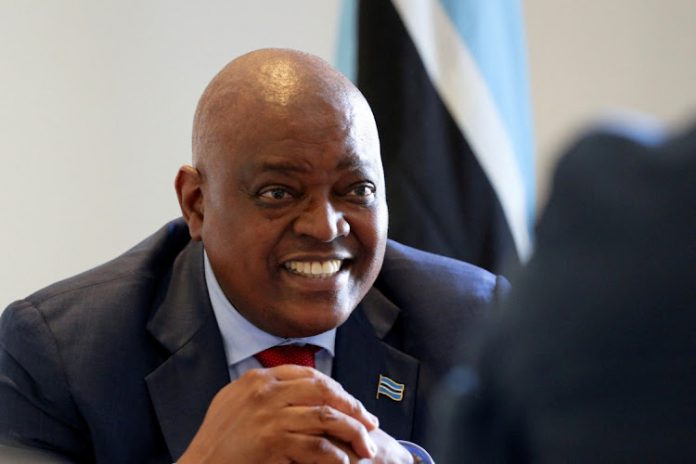The Develop Manager(DM) Model will be used for the efficient and effective implementation of one hundred and forty-three (143) projects across the country, with a budget allocation of over Thirteen Billion Pula (P13 Billion), mainly for development in rural areas.
President Mokgweetsi Masisi said, “Other game-changer reforms include, the Artificial Insemination programme with imported bulls and heifers of superior genetics; Temo Letlotlo; Village Connectivity; the acquisition of strategic or high value assets and Government Online Services. 10. These investments include electrification of villages, provision of clean water, roads, schools, hospitals, sanitation infrastructure as well as revival of the agricultural sector, among others.”
Government has developed the National 5 Transformation Strategy for the effective implementation of our long-term Vision. The strategy prioritises Mining, Tourism, Agriculture, Manufacturing, Transport and Logistics, Trade, Sport and Creative Industry, Financial, Knowledge and Technology, Real Estate and Business Services sectors.
“Their prioritisation is based on potential for high economic growth, competitive advantage, job creation, as well as value chain development, and their positive spill-over effects on the overall economy,” said Masisi.
According to officials, the global economy continues to recover at a slower pace than expected due to the adverse effects of the COVID-19 pandemic and the war in Ukraine. The ongoing war in the Middle East has the potential to slow down the recovery even further. As such, Government continues to monitor the global economic situation and update the nation accordingly.
The International Monetary Fund (IMF) expects global growth of 3.0 percent in 2023, compared to a slightly higher growth of 3.5 percent in 2022. This slowdown is expected to be mostly driven by weak economic performance, especially in major trading economies such as the China, United States of America, the United Kingdom, and Europe. On the other hand, growth in advanced economies is estimated at 1.5 percent in 2023 from 2.6 percent in 2022.
Emerging markets and developing economies are estimated to grow by 4.0 percent in 2023, compared to 4.1 percent in 2022, while the sub-Saharan Africa region is expected to record a growth of 3.3 percent in 2023 compared to 4.0 percent in the previous year.
Officials believe the economy is expected to mirror global economic performance. In this regard, the economy 9 is expected to slow down to 3.8 percent in 2023, compared to 5.8 percent in 2022.
This slow growth is attributed to the weak demand for rough diamonds.
Growth in 2023 is expected to be driven by the non-mining sector, underpinned by various factors such as Government interventions aimed at accelerating economic transformation and building economic resilience. The annual average growth rate falls short of the 6 percent required to attain a high-income status as espoused by the National Vision 2036.
On the cost of living, the average inflation recorded in 2022 was 12.2 percent. This was largely driven by external factors such as the increase in international oil prices and supply chain disruptions experienced during the first half of the year. 30. In response, the Bank of Botswana raised the Monetary Policy Rate and has maintained it at 2.65 percent since August 2022.









